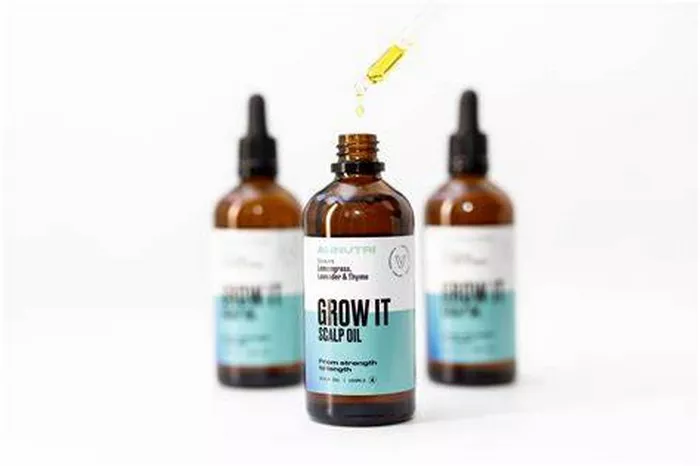In the realm of hair care, the focus often falls on the strands themselves—how to keep them shiny, strong, and well-styled. Yet, a crucial aspect of maintaining healthy hair often goes overlooked: the scalp. Just as fertile soil is essential for the growth of healthy plants, a nourished scalp is vital for vibrant, lustrous hair. One of the most effective ways to achieve this is through the use of scalp oils. In this comprehensive guide, we delve into the myriad benefits of scalp oils, explore specific oils and their advantages, provide expert application techniques, offer guidance on frequency and usage, and assist in choosing the right oil tailored to individual hair types.
Scalp Health Benefits
The scalp, like the skin on the rest of our bodies, requires care and attention to remain healthy. Scalp oils play a crucial role in maintaining optimal scalp health by nourishing the skin and promoting hair growth. Rich in vitamins, minerals, and fatty acids, these oils penetrate the skin’s layers, providing essential nutrients that encourage cell regeneration and circulation. This nourishment not only strengthens the hair follicles but also alleviates common scalp issues such as dryness, itchiness, and dandruff.
Regular application of scalp oils can help rebalance the scalp’s natural oil production, preventing excessive dryness or oiliness. Furthermore, massaging the scalp during oil application stimulates blood flow, which can enhance the delivery of nutrients to the hair follicles, promoting healthier and faster hair growth.
Specific Oils and Their Benefits
Different oils offer unique benefits for scalp and hair health. Here are some popular options and their specific advantages:
1. Coconut Oil: Renowned for its moisturizing properties, coconut oil penetrates deeply into the hair shaft, reducing protein loss and preventing breakage. It also possesses antibacterial and antifungal properties, making it effective against dandruff and scalp infections.
2. Tea Tree Oil: With its potent antimicrobial and anti-inflammatory properties, tea tree oil is excellent for treating dandruff, dry scalp, and scalp irritation. It can help soothe itching and reduce flakiness while promoting overall scalp health.
3. Rosemary Oil: Known for its stimulating properties, rosemary oil improves blood circulation to the scalp, thereby promoting hair growth. It also has antimicrobial properties that can help combat dandruff and other scalp conditions.
4. Jojoba Oil: Jojoba oil closely resembles the natural sebum produced by the scalp, making it an excellent moisturizer for both the scalp and hair. It helps regulate oil production, making it suitable for all hair types, including oily scalp.
5. Argan Oil: Rich in antioxidants, vitamins, and fatty acids, argan oil nourishes and hydrates the scalp, promoting healthy hair growth. It also adds shine and softness to the hair while protecting it from environmental damage.
Application Techniques
To reap the full benefits of scalp oils, proper application is key. Follow these steps for effective oil application:
1. Start with a small amount of oil, warming it between your palms before applying it to the scalp.
2. Section your hair to ensure even distribution of the oil.
3. Using your fingertips, massage the oil into your scalp in circular motions. This not only helps distribute the oil but also stimulates blood flow to the hair follicles.
4. Continue massaging for 5-10 minutes to ensure thorough absorption.
5. For added nourishment, wrap your head in a warm towel or use a shower cap to trap heat and enhance penetration.
6. Leave the oil on for at least 30 minutes, or preferably overnight, to allow it to work its magic.
7. Finally, shampoo and condition your hair as usual to remove any excess oil.
Frequency and Usage
The frequency of scalp oil application depends on individual needs and preferences. Some may benefit from weekly treatments, while others may choose to apply oil more frequently. However, it’s essential not to overdo it, as excessive oil buildup can weigh down the hair and lead to greasiness.
For best results, consider incorporating scalp oil treatments into your regular hair care routine. You can adjust the frequency based on your scalp’s condition and responsiveness to the treatment. Additionally, leaving the oil on overnight can maximize its effectiveness, allowing it to deeply penetrate the scalp and hair shaft.
Choosing the Right Oil
When selecting a scalp oil, it’s crucial to consider your hair type and specific concerns:
1. Fine Hair: Opt for lightweight oils such as jojoba or argan oil, which won’t weigh down the hair or leave it looking greasy.
2. Curly Hair: Moisturizing oils like coconut or shea butter are ideal for curly hair, as they help hydrate and define curls while reducing frizz.
3. Damaged Hair: Repairing oils such as argan or castor oil can help restore strength and vitality to damaged hair, promoting healing and preventing further breakage.
4. Dry Scalp: Emollient oils like coconut or olive oil provide intense hydration to dry scalp, soothing irritation and restoring moisture balance.
In conclusion, scalp oils offer a myriad of benefits for scalp and hair health, from nourishing the skin to promoting hair growth and addressing common concerns like dryness and dandruff. By incorporating scalp oil treatments into your regular hair care routine and selecting the right oil for your hair type and needs, you can achieve a healthy, balanced scalp and beautiful, vibrant hair.


